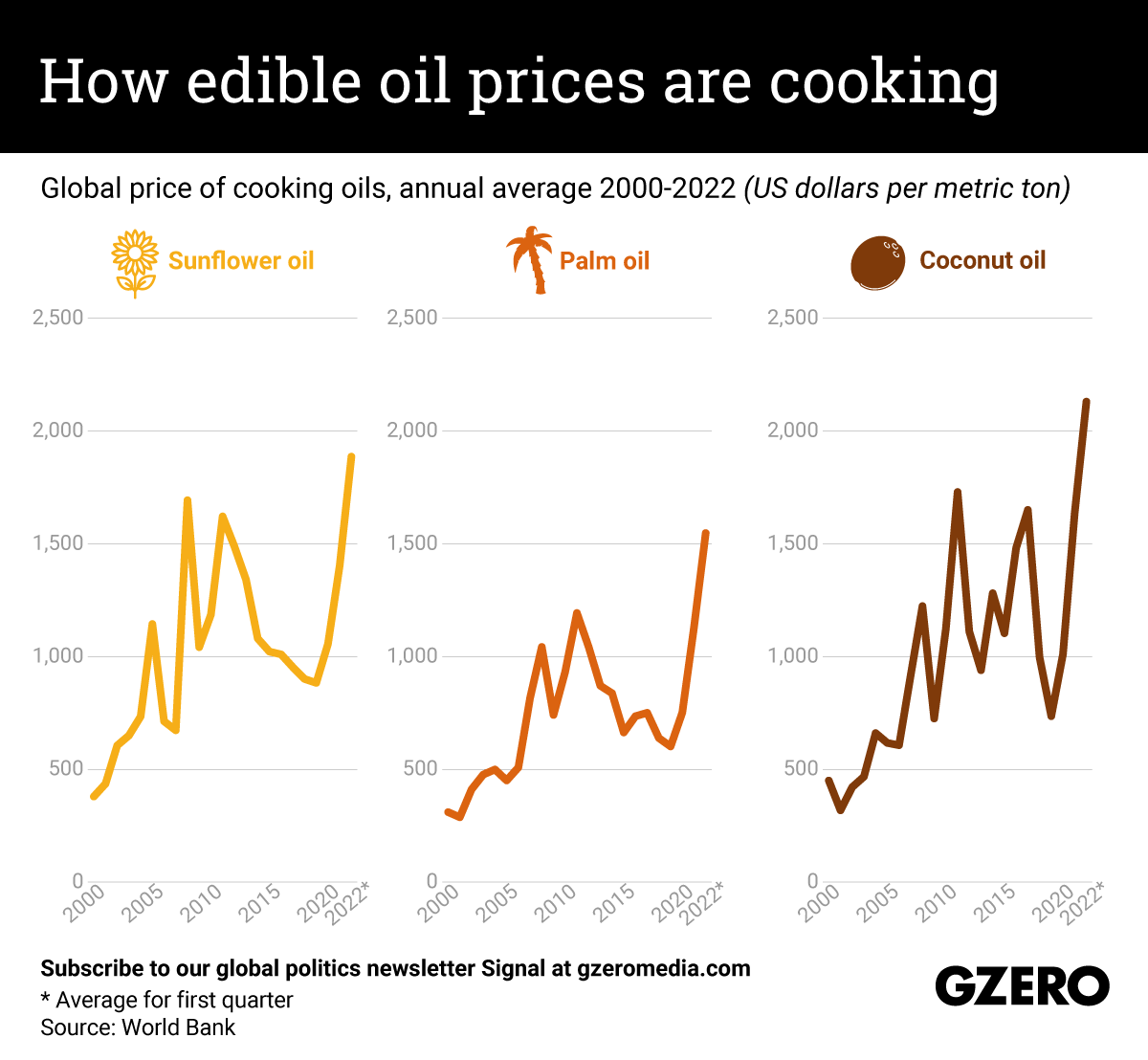May 30, 2022
Supply chain disruptions and the war in Ukraine have caused a growing food crisis globally, resulting in scarcity of staples and soaring prices.
The crisis has also given rise to protectionist trade policies, with some countries trying to hoard reserves and keep prices down at home. While states like Indonesia temporarily banned exports of palm oil — driving up prices of the cheap cooking oil that most developing states rely on — some wealthy European states have rationed how much sunflower oil consumers can purchase at the grocery store.
The effects of these disruptions in recent months have been felt far and wide. After the temporary Indonesian export ban was announced last month, the national currency in India, the world’s largest importer of palm oil, dropped to an eight-month low. Similarly, Britain’s lucrative fish and chip market has been sent into a tizzy because of sunflower oil shortages, and there are estimates that thousands of fish and chip shops could be forced to close their doors.
We take a look at the global price of palm, sunflower, and coconut oils since 2000.
For more insights on the topic, check out Hunger Pains, GZERO’s special coverage of the ongoing food crisis.This comes to you from the Signal newsletter team of GZERO Media. Subscribe for your free daily Signal today.
More For You
- YouTube
Singapore was one of globalization’s biggest beneficiaries. Ian Bremmer looks at whether the city-state can survive in a world where the economic order that drove Singapore's rapid rise starts to unravel.
Most Popular
Think you know what's going on around the world? Here's your chance to prove it.
Igmel Tamayo carries charcoal to sell on the side of a road for use as cooking fuel in homes, after US President Donald Trump vowed to stop Venezuelan oil and money from reaching the island as Cubans brace for worsening fuel shortages amid regular power outages, on the outskirts of Havana, Cuba, on January 12, 2026.
REUTERS/Norlys Perez
Xi Jinping has spent three years gutting his own military leadership. Five of the seven members of the Central Military Commission – China's supreme military authority – have been purged since 2023, all of whom were handpicked by Xi himself back in 2022.
© 2025 GZERO Media. All Rights Reserved | A Eurasia Group media company.
